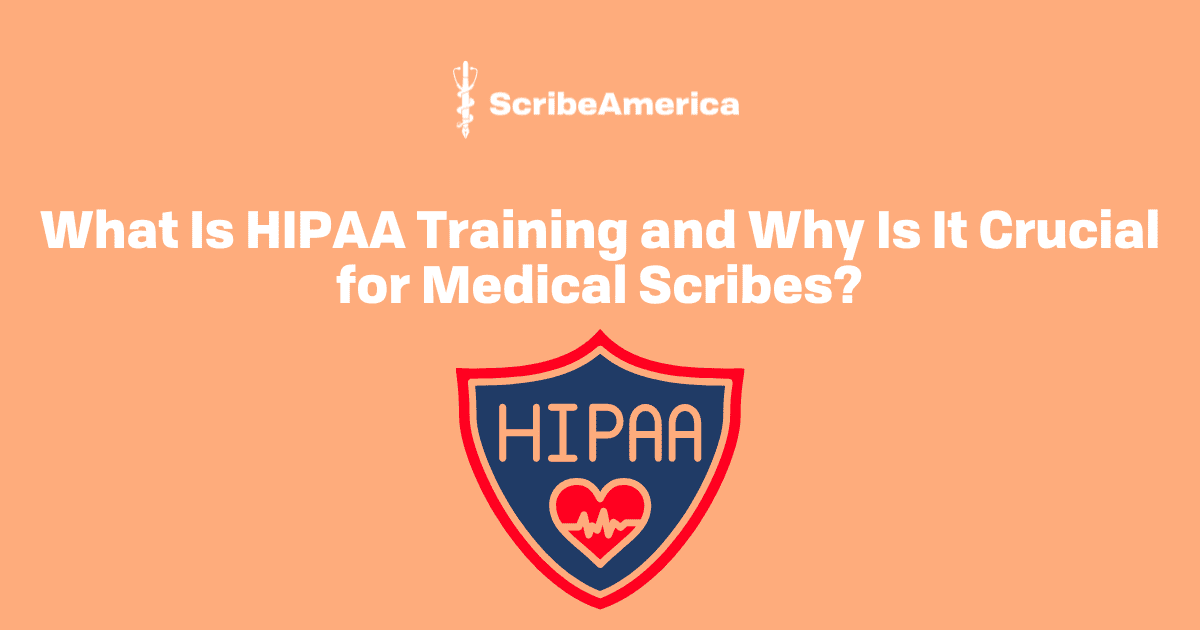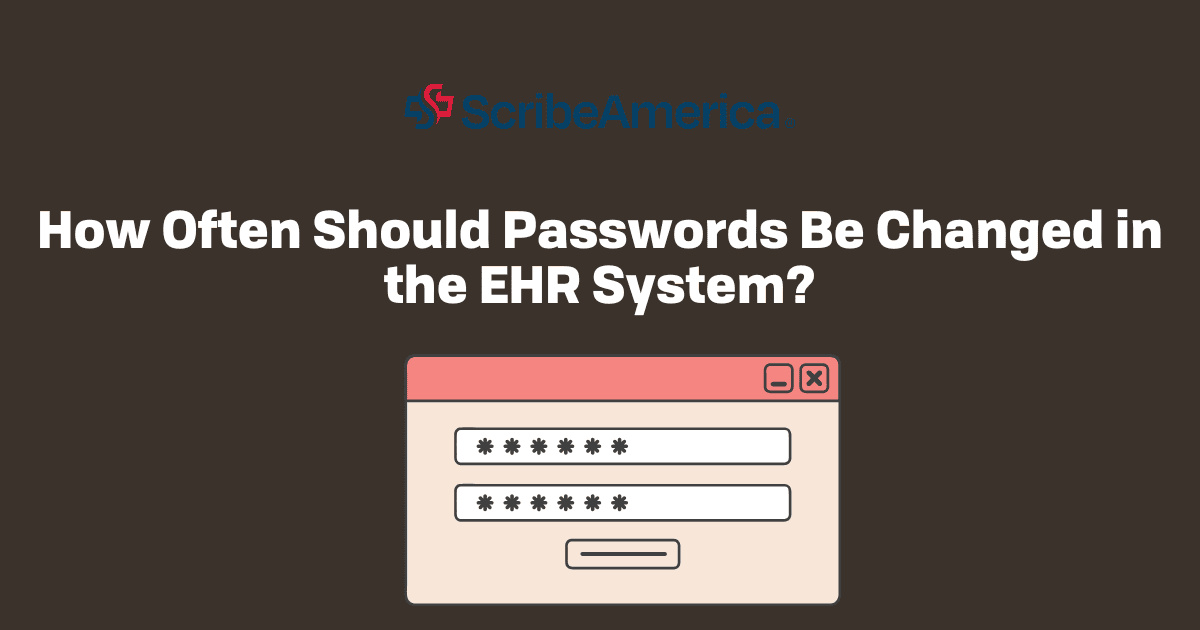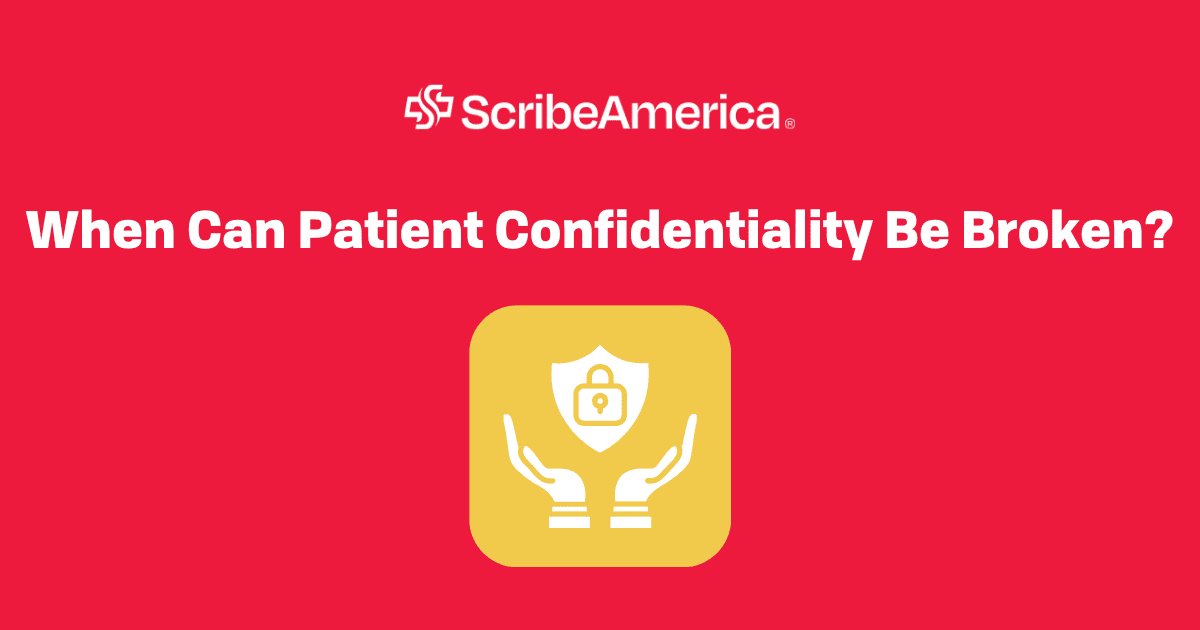Key points:
- HIPAA training explains the rules for protecting patient information – It covers the Health Insurance Portability and Accountability Act, which sets national standards for keeping protected health information (PHI) secure and confidential.
- Proper training prevents costly mistakes and legal risks – Even small oversights like leaving screens unlocked or casually discussing cases can result in data breaches, fines, or termination.
- HIPAA training builds professionalism and trust – By respecting patient privacy, scribes not only protect data but also support the integrity of healthcare teams and prepare for future careers in medicine.
Medical scribes are professionals who document the details of patient visits in real time so physicians can focus on what matters most. In daily work, they often handle sensitive information about diagnoses, treatment plans, and medical histories. As you can guess, this access carries significant responsibility that demands a strong understanding of privacy laws. That’s why HIPAA training is simply essential in this field. But what is it about and why does it really matter? Let’s dive in!
What does HIPAA training mean?
So, what is HIPAA training? It’s basically an educational program focused on the Health Insurance Portability and Accountability Act (HIPAA) – a federal law designed to protect the privacy of patients’ health information. Enacted in 1996, HIPAA set national standards to ensure the confidentiality, integrity, and security of protected health information (PHI).
For medical scribes, HIPAA compliance training teaches the principles and procedures for handling PHI safely, both on paper and electronically. But the training goes beyond memorizing rules. It also involves learning how to apply those rules in real clinical settings where we all know time is limited and the flow of information is constant.

Why HIPAA compliance training is a must for scribes
Medical scribes operate on the front lines of patient care, often working side-by-side with physicians during consultations. They listen to private conversations, access electronic health records, and enter detailed information into clinical systems. Their proximity to sensitive data makes HIPAA compliance training essential.
Mistakes, even small ones, can have major consequences. A scribe who fails to log out of a shared workstation or leaves patient notes visible on an unlocked screen could unintentionally cause a data breach. The right training helps healthcare professionals recognize these risks and teaches them how to avoid them.
Why does it matter? Because without proper education scribes might not realize when they’re violating HIPAA rules. For example, discussing patient cases outside of the clinical setting even casually can be a breach. HIPAA and privacy act training gives scribes the tools to identify boundaries, stay within them, and uphold both legal and ethical standards.
HIPAA and privacy act training builds professionalism
One of the most overlooked benefits of HIPAA and privacy act training is that it instills a sense of professionalism. Understanding how to protect PHI actually shows respect for patients and earns the trust of healthcare teams.
Patients rarely interact directly with scribes, but that doesn’t lessen the importance of the scribe’s role. Every time a patient shares private information, they’re relying on the entire care team to protect it. Scribes who are well-trained in HIPAA principles are better prepared to meet this responsibility without hesitation or uncertainty.
Moreover, scribes are often aspiring healthcare providers themselves. Mastering HIPAA early helps them develop habits they’ll carry throughout their careers; whether they become physicians, nurses, or administrators.
What about online HIPAA training?
Given the fast pace of healthcare and the rise of remote scribing, many organizations turn to online HIPAA training, providing incredible flexibility. Good online platforms offer many advantages: scribes can complete training modules at their own pace, which is especially helpful for students or part-time workers. The content is typically updated regularly to reflect changes in law or new best practices.
Furthermore, well-designed online HIPAA training goes beyond basic instruction. It includes real-life scenarios and practical applications of privacy rules in clinical situations. This kind of learning reinforces not just what the rules are, but how to actually apply them under pressure.
Consequences and responsibility
As you may guess, HIPAA violations can lead to serious penalties. Healthcare organizations may face large fines, while individuals can be subject to termination or even legal action. HIPAA compliance training helps prevent these outcomes by building awareness before issues arise.
The most common mistakes scribes make are simply everyday oversights. Leaving notes unattended, talking about a case in a hallway, or failing to secure a device can all put patient data at risk. Training teaches scribes to recognize these situations and respond correctly.
When medical scribes take privacy seriously, they contribute to a culture of compliance and trust. Their attention to detail doesn’t just improve documentation – it protects patients and supports the integrity of the entire healthcare system.
The takeaway
Understanding what HIPAA training is is key for any medical scribe who wants to work responsibly.
Through effective education, scribes gain the tools they need to navigate complex privacy rules, avoid costly mistakes, and work as trusted members of the healthcare team. And with the convenience of more and more popular online HIPAA training, there’s actually no longer any barrier to getting started.




